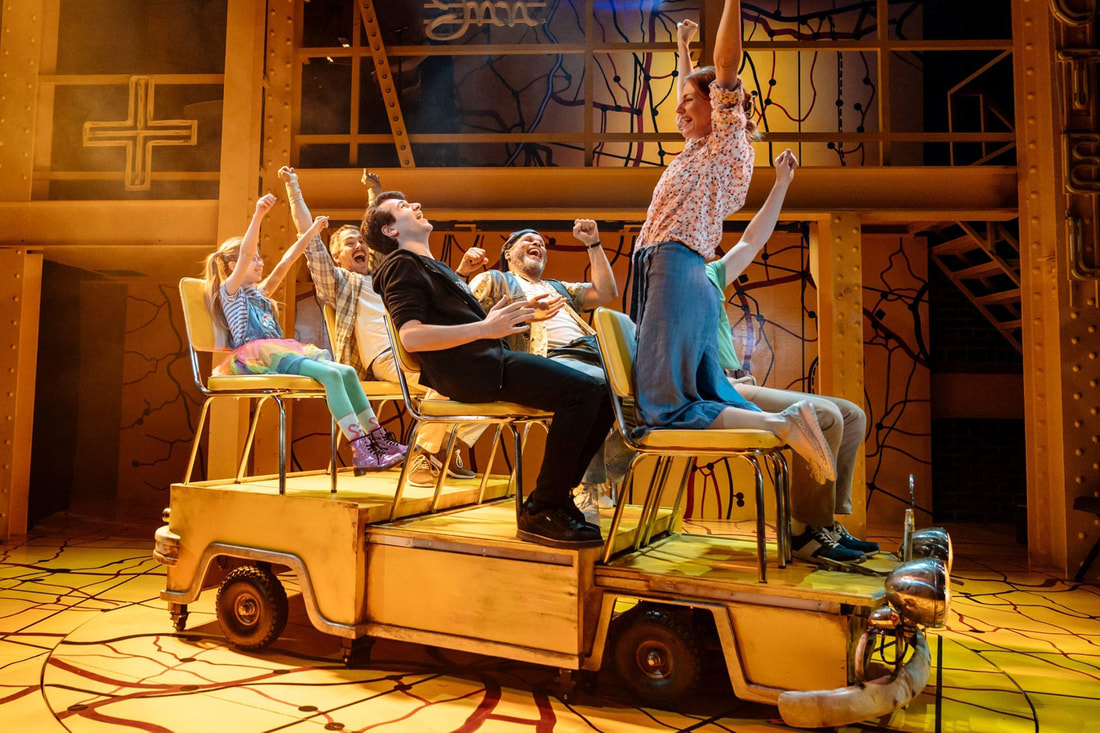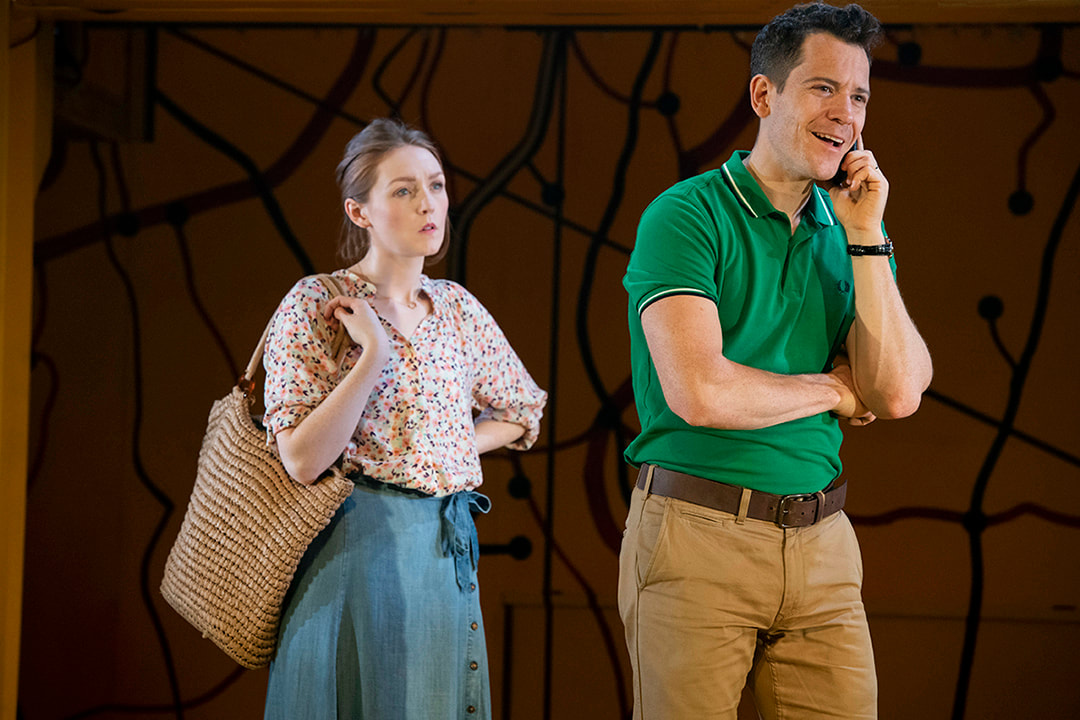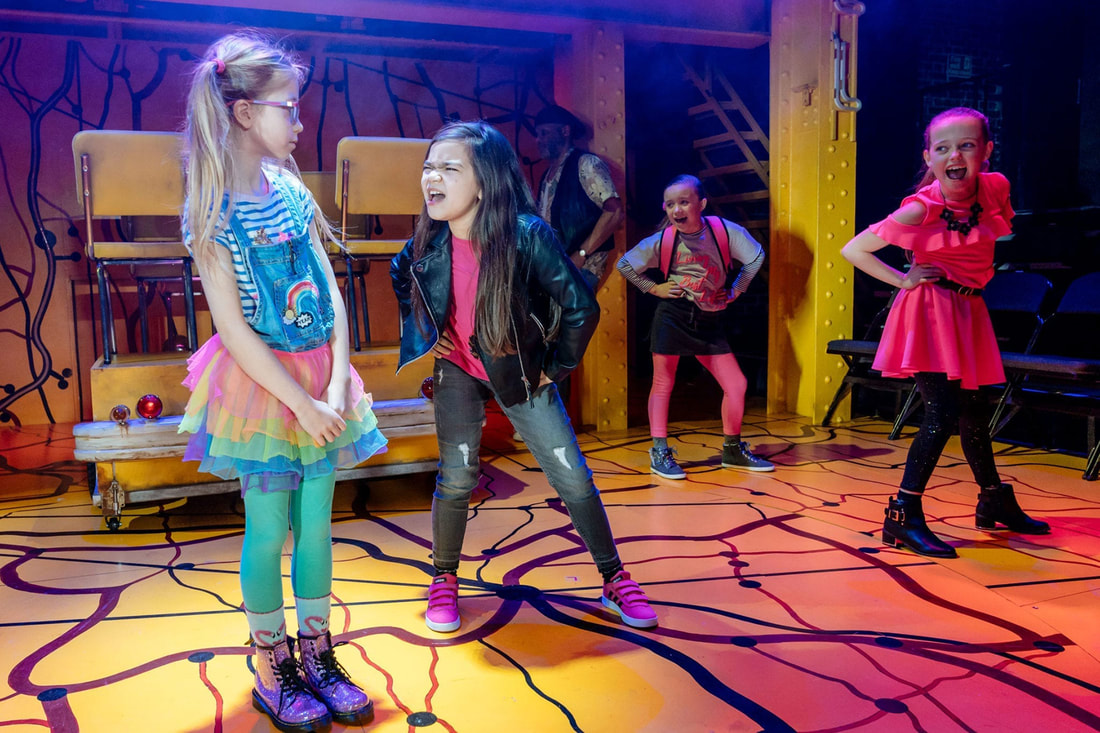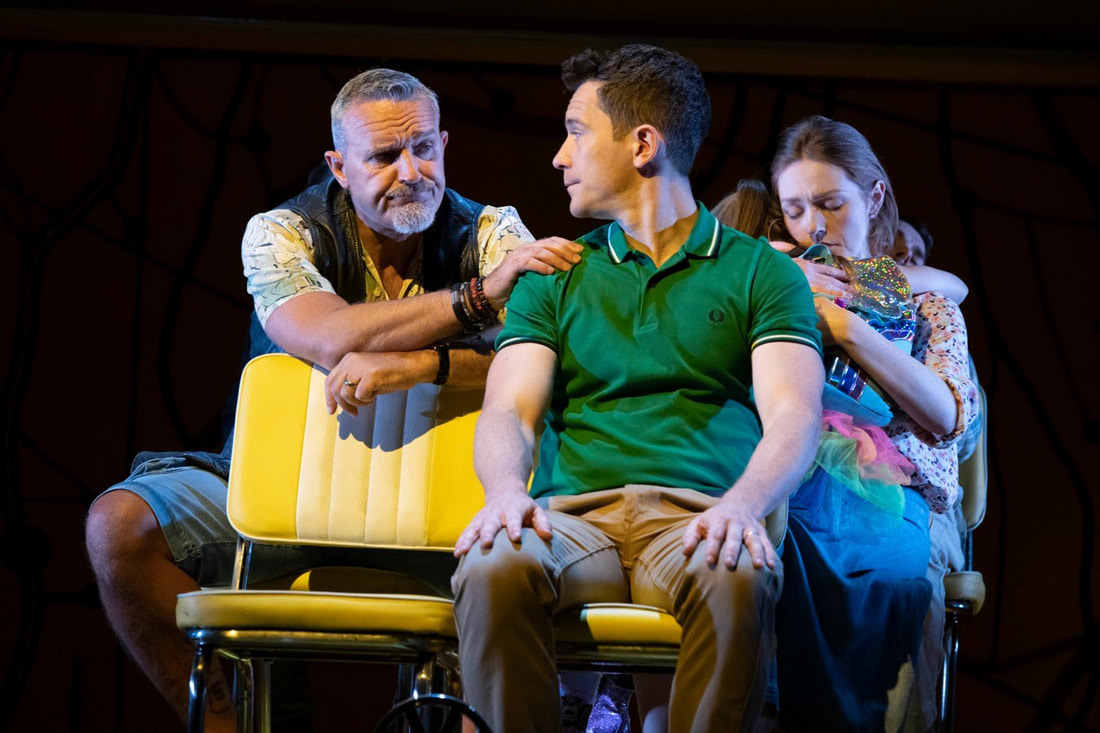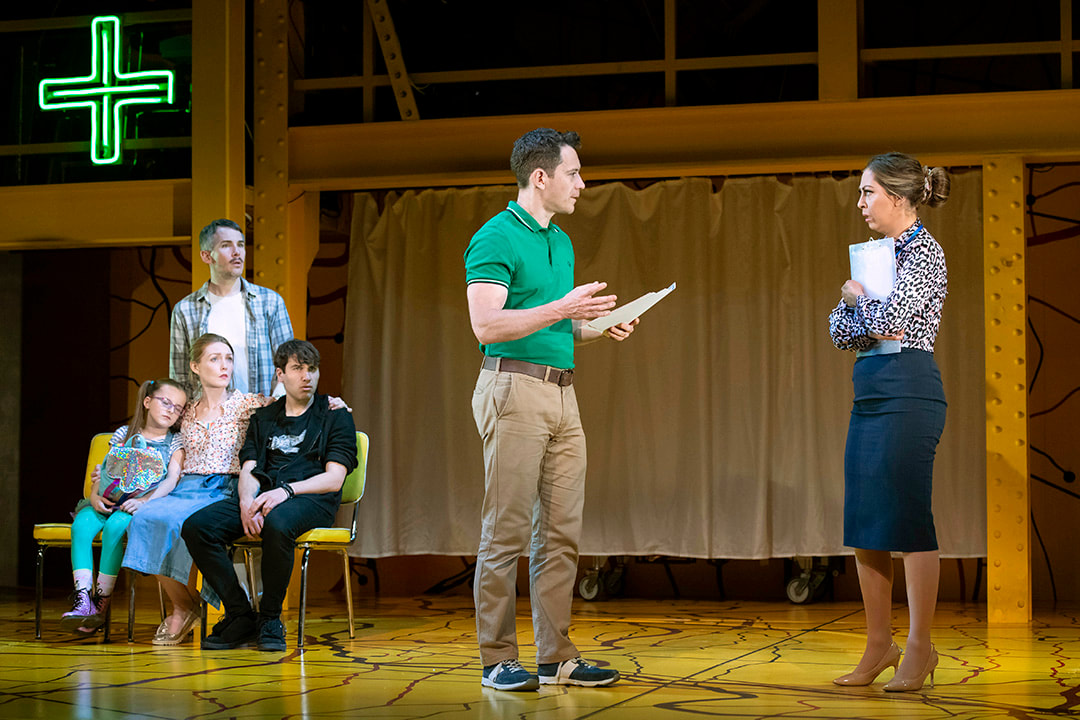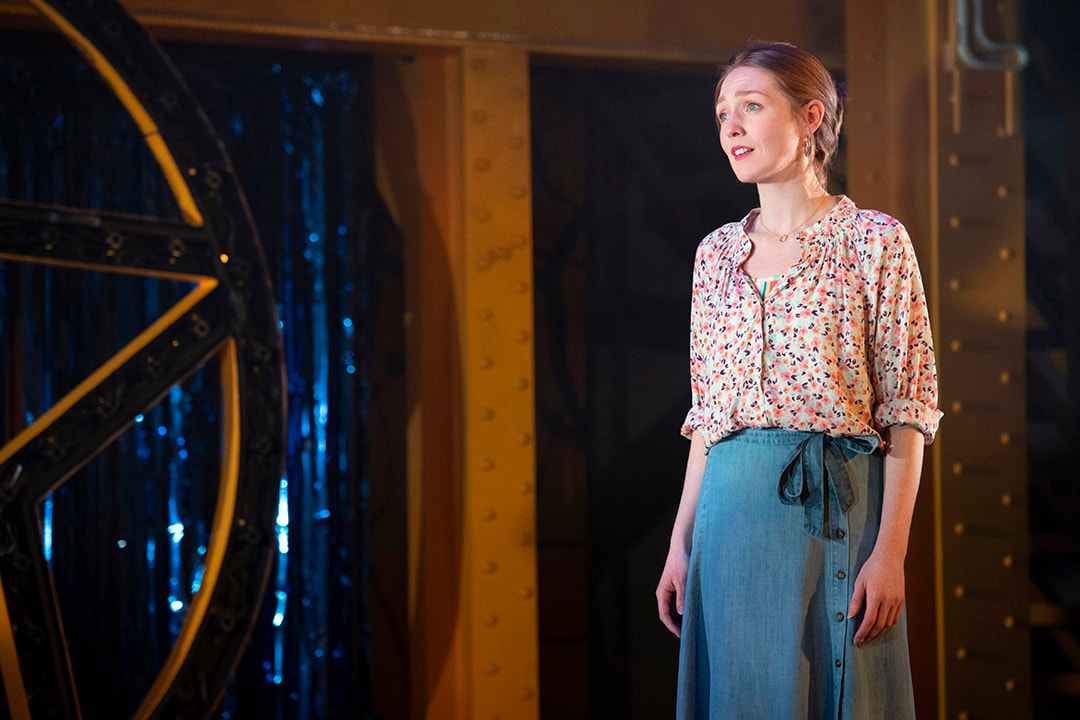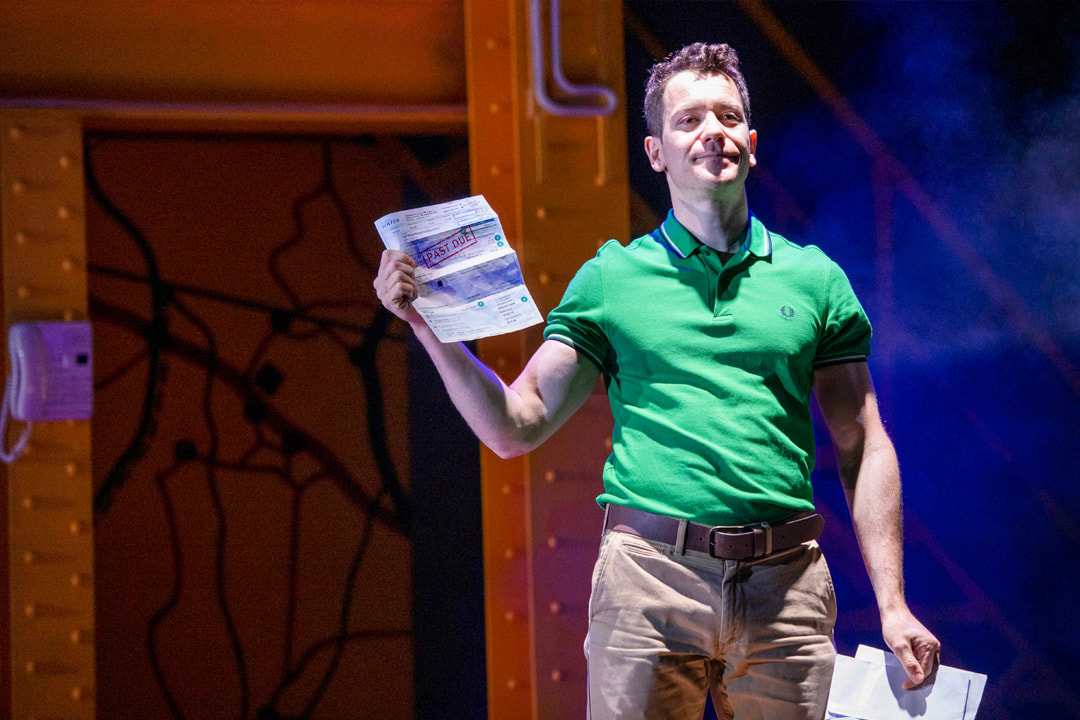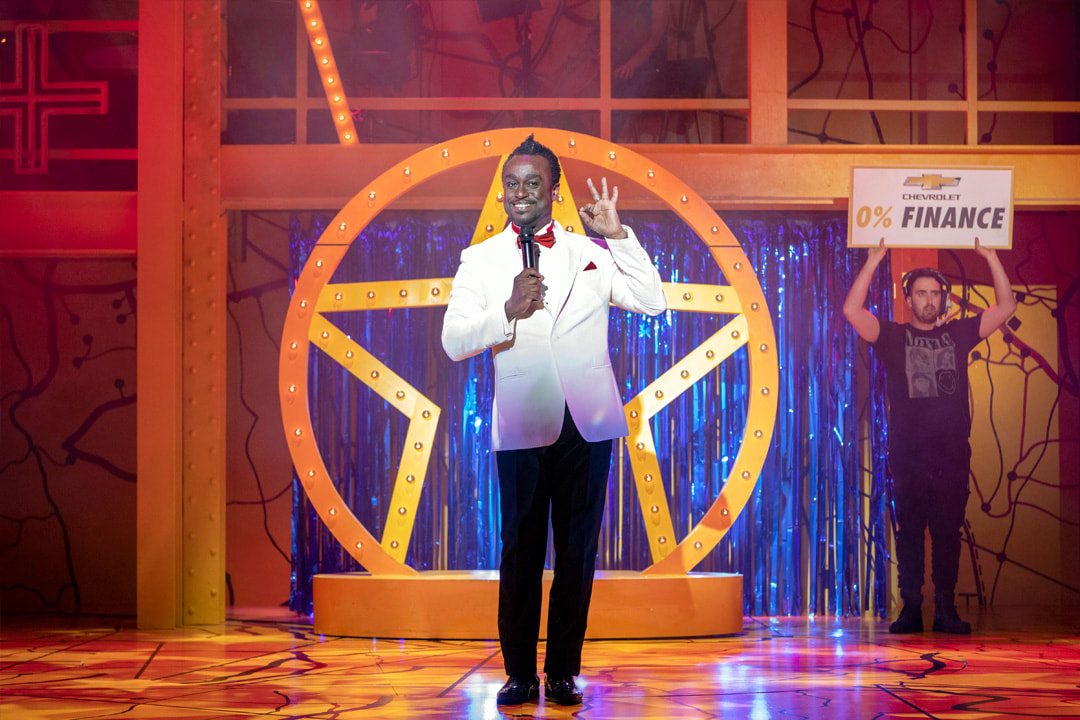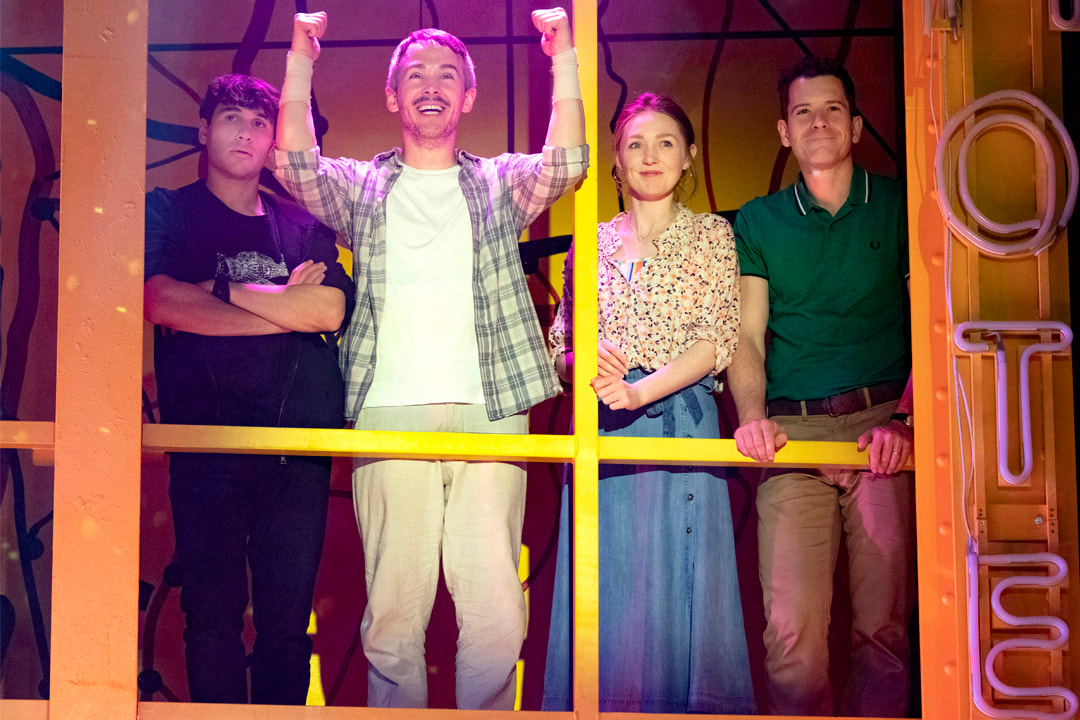Little Miss Sunshine |
Offizielle deutsche Übersetzung des Musicals von William Finn und James Lapine, basierend auf dem gleichnamigen Oscar-nominierten Spielfilm von 2006.
Die deutschsprachige Erstaufführung unter der Regie von Katja Wolff fand am 01. Juli 2023 am Mecklenburgischen Staatstheater im Rahmen der Schlossfestspiele Schwerin statt. Aufführungsrechte bei Musik und Bühne
|
Über das Stück |
Ebenso witzig wie berührend ist das Musical "Little Miss Sunshine" mit dem Buch von James Lapine, der u.a. mit Stephen Sondheim "Sunday In The Park With George" und "Into The Woods" schrieb, und der Musik von William Finn.
Die Familie Hoover hat schon bessere Tage gesehen. Vater Richard ist ein Motivationstrainer ohne Motivation, Großvater wurde soeben aus dem Seniorenheim geworfen, Sohn Dwayne hat ein Schweigegelübde abgelegt und Onkel Frank hat - frisch verlassen von seinem Lover - einen Selbstmordversuch hinter sich. Bleiben die Frauen: Mutter Sheryl, verständlicherweise unter Stress, aber immer tapfer, und schließlich Tochter Olive, die Jüngste, die unerschrocken einem Schönheitswettbewerb entgegenfiebert. Auf dem Weg dahin sortieren sich so manche Verhältnisse neu, und der Wettbewerb um den Titel "Little Miss Sunshine" erweist sich halb als Desaster, halb als Familientherapie. Das Musical basiert auf dem oscarnominierten Film von 2006 und ist ein echtes Ensemblestück. Wenige, aber starke, liebenswerte Rollen, eine kleine Instrumentalbesetzung und geringe Anforderungen an die Ausstattung machen "Little Miss Sunshine" zu einem reizvollen Projekt. Text | Musik und Bühne "Kleiner Tip: Nichts erhoffen vom Leben.
|
Musikalische Nummern |
|
Pressestimmen |
"The new musical 'Little Miss Sunshine' opens with an emotional cloudburst. As the fractured family at the center of the show gathers for dinner, just about everyone has a grim comment to make on the state of existence. [...]
But if you find yourself thinking, 'Oh dear, what Stephen Sondheim has wrought,' think again. Or just recall the trajectory of the popular movie of the same title, from which the show is adapted. Like that Oscar-laureled film, the musical soon makes a U-turn to head into peppier territory, with everyone arriving at a state of reasonable contentment in time for that 'shake your ba donk a donk' pageant climax. 'Little Miss Sunshine,' which opened on Thursday night at the Second Stage Theater, is the work of two venerable musical-theater veterans. The score is by William Finn, the composer and lyricist best known for 'Falsettos' and 'The 25th Annual Putnam County Spelling Bee,' who writes light-fingered melodies and well-turned lyrics, often infused with dark, acerbic humor, as in that opening number. James Lapine, who directed those shows and wrote the book for 'Falsettos,' repeats both those chores here. He has also memorably collaborated with Mr. Sondheim, of course, and knows well how to dig into a character’s burdened heart and to find contrasting shades of light and dark in any story. [...] At the movies, a road trip can really feel like a road trip. [...] Mr. Lapine cleverly creates the van by shifting around a suite of wheeled dining chairs. (Beowulf Boritt has designed a witty set that riffs on Google maps.) [...] the show’s moving central ballad, 'Something Better Better Happen' — more lyrical (and memorable) than anything in this season’s other Off Broadway musical of family angst, 'Fun Home' — really hits the show-tune sweet spot, heightening a moment without simplifying or sentimentalizing it." Charles Isherwood | The New York Times | 14. November 2013 "...ein Musical-Juwel."
|
Videos |
Little Miss Sunshine | Trailer UK-Tour 2019
Video © Little Miss Sunshine The Musical |
Etwas Besseres |
SHERYL
ICH DACHTE IMMER, ICH TREFF‘ JEDE WAHL NUR GUT DURCHDACHT UND RATIONAL. PLÖTZLICH BIN ICH SCHOCKIERT, ÜBERRASCHT, IRRITIERT. UND ICH FÜRCHTE MICH, ZUM ERSTEN MAL. WAS AUCH IMMER DIE ENTSCHEIDUNG WAR, JEDER TAG IST GLEICH UND AUSTAUSCHBAR. UND EGAL, WAS ICH SAG‘, WIE OFT ICH’S AUCH HINTERFRAG‘, ES IST SCHLIMMER, ALS AM TAG DAVOR. ES WÄR’ BESSER, KÄM‘ WAS BESS’RES. BESSER GUT ALS GUT GEMEINT. ES WIRD ZEIT, DASS NACH DEM REGEN ENDLICH DIE SONNE WIEDER SCHEINT. MAL WIRD’S BESSER, MEISTENS SCHLIMMER. ABER NICHTS BLEIB STEH’N. DUMM VON MIR, ICH GLAUB‘ NOCH IMMER, IRGENDWIE WIRD’S WEITERGEH’N. WIRD’S WEITERGEH’N? ES MUSS WEITERGEH’N... ES WÄR’ BESSER, KÄM‘ WAS BESS’RES. BESSER GUT ALS GUT GEMEINT. ES WIRD ZEIT, DASS NACH DEM REGEN ENDLICH DIE SONNE WIEDER SCHEINT. Originaltitel
Something Better Deutsche Übersetzung Robin Kulisch © 2023 Kopieren verboten Alle Rechte vorbehalten "Schritt für Schritt,
|


